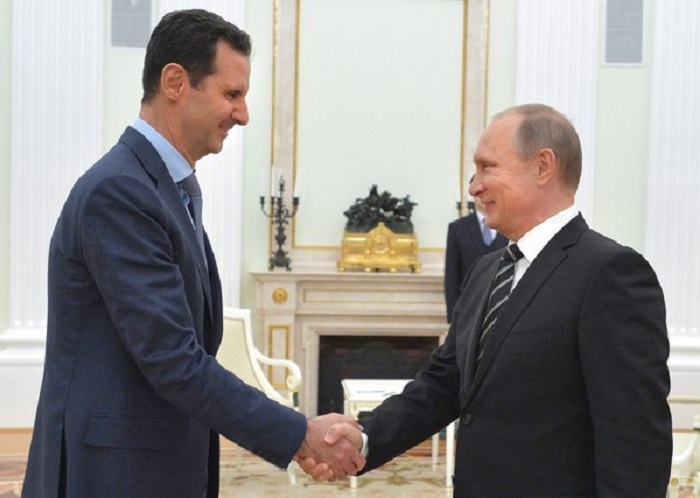Mr Assad angrily refused.
Two senior western intelligence officials have given the FT details of Sergun’s mission. The Russian foreign ministry referred a request for comment to the defence ministry, which said it was unable to comment.
Russia’s failed gamble in Damascus left Mr Assad more entrenched than before, and hopes for a diplomatic solution to the vicious civil war appear again to be ebbing away.
UN officials have spent the past week lowering expectations that the talks between the warring factions planned for January 25 in Geneva will go ahead, let alone produce a diplomatic breakthrough.
It is a dramatic reversal of fortunes. News of the secret proposal delivered by Sergun — a choreographed transition of power that would maintain the Alawite regime but open the door to realistic negotiations with moderate rebels — added to a growing mood of optimism among western intelligence agencies in late 2015.
For the US-led coalition fighting Isis, it seemed that accommodating Moscow could break years of diplomatic deadlock over Mr Assad’s removal — a move Washington views as a precondition to cooling the sectarian tensions in Syria and Iraq that have fed the jihadi insurgency.
Moscow’s military intervention in the conflict in support of Damascus in late September, many in Europe and the US reasoned, had reached its limit. “Mr Putin had taken a look under the bonnet of the Syrian regime,” one senior European intelligence official told the FT “and found a lot more problems than he was bargaining for.”
However, Russia overplayed its hand, the official said, and Mr Assad made clear to Sergun that there could be no future for Russia in Syria unless he remained as president.
In his dealings with the Kremlin, Mr Assad has adopted a strategy of playing one foreign power off against another. His trump card on this occasion was Iran. Russia has been nervous of Tehran’s growing regional influence at the cost of its own leverage for months.
People close to the Syrian regime say suspicions about Russia’s intentions have been growing in Damascus for some time. “That mood of elation when Russia first got involved lasted for a while, but then people got more pessimistic,” said one Damascus businessman. “Assad’s people started to realise that having the big brother defending them meant he could also demand things of them too.”
Mr Assad has also been scrupulous in rooting out any powerful figures who might one day stand as an alternative to his leadership.
The disappearance of Abdelaziz al-Kheir, an Alawite dissident, was a striking example, said Joshua Landis, a Syria analyst from Oklahoma State University.
Mr Al-Kheir, a leading member of the National Co-ordinating Body, a political grouping dedicated to negotiating with Mr Assad to achieve democratic change, was from a prominent family in Mr Assad’s home town, said Mr Landis.
“He went to Moscow in 2012 and then he went to Beijing. It seemed clear to everyone they were checking him out as a potential Alawite replacement to the current regime that could assure the Alawite community,” Mr Landis said. On his return to Damascus he was taken from the airport by security agencies.
“That seemed to be a sign that Assad was not going to allow Russia to pick the next president,” Mr Landis added.
Moscow is frustrated. “It has become quite clear that part of an eventual political solution is that Assad has to step aside at some point, although we don’t think that it has been decided yet when that should be,” said a Russian authority on Syria who is involved in Moscow’s diplomacy. “Ever since President Assad was flown in to be received by our president last year, his attitude has been less that satisfactory, and this does interfere with our efforts towards a political solution.”
But the Kremlin is also pragmatic, note many foreign policy experts, and its intervention is as much about projecting itself on the international stage as it is about determining Syria’s leader.
Dmitri Trenin, head of the Carnegie Moscow Center, said: “For Putin, the intervention in Syria was never about keeping Assad in power, it is about getting the Americans to acknowledge Russia’s key role in settling this conflict, and that’s being achieved through the Vienna process.
“But it looks premature to engineer a coup in Syria — I don’t see how that would help the political process as there are not enough opposition people who can accept the regime if it gets just a different figurehead.”
Meanwhile, says one British diplomat, with no palatable strategy for withdrawal, Russia appears to be doubling down on its military intervention, leaving the prospect of a negotiated peace as far from reality as it has ever been.
More about:
















































